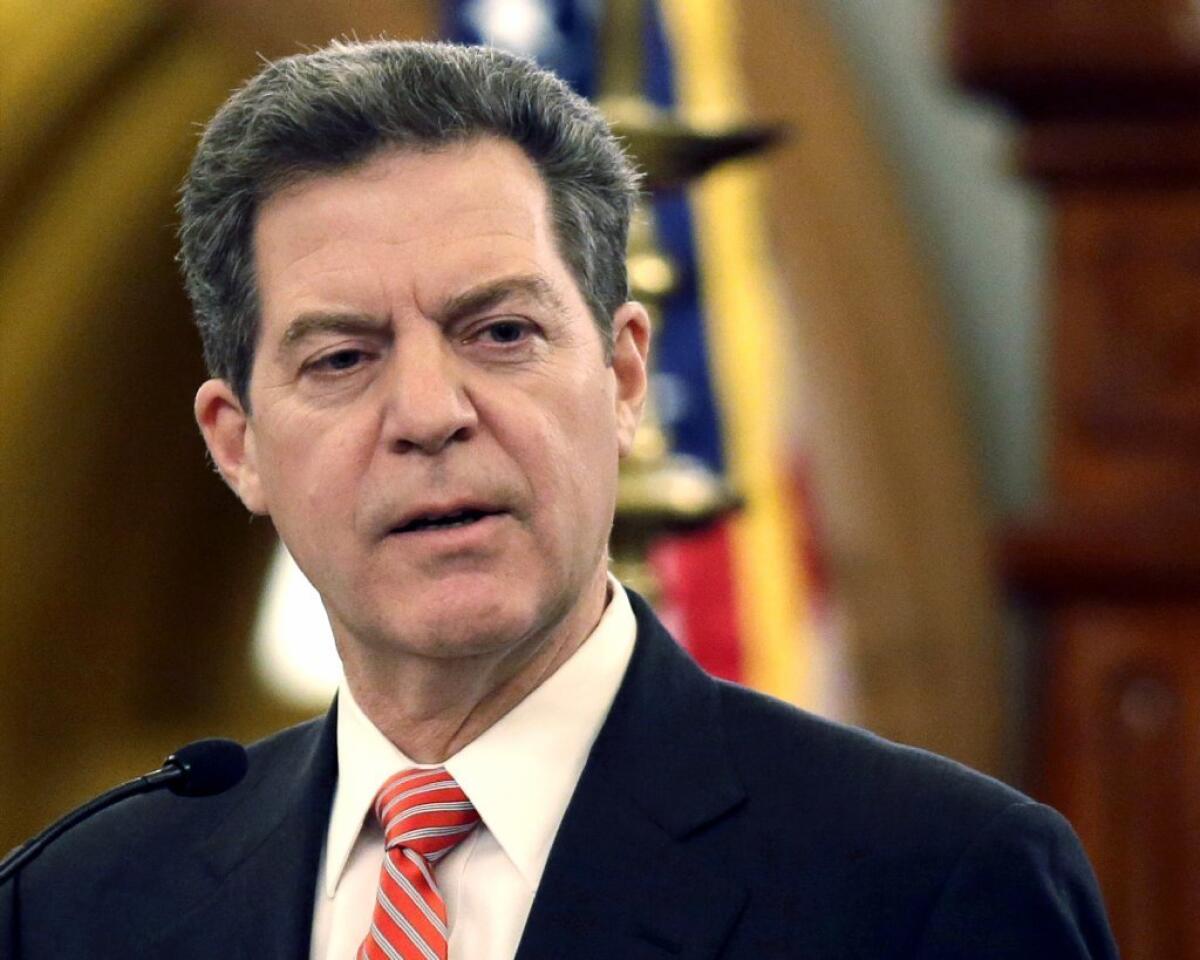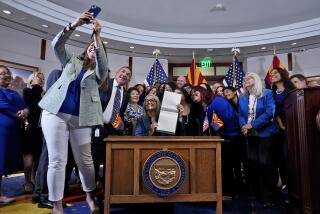Kansas governor removes protections for LGBT employees

In a move that shocked progressive advocates in Kansas, the state’s Republican governor on Tuesday issued an executive order to remove discrimination protections for gay, lesbian and transgender state employees.
State employees in Kansas can now legally be fired, harassed or denied a job for being gay or transgender, critics said.
Gov. Sam Brownback said an 2007 executive order by Kathleen Sebelius, then the state’s Democratic governor, went too far by not getting legislative approval to bar job discrimination for sexual orientation and gender identity.
Discrimination for state jobs in Kansas is forbidden for race, color, gender, religion, national origin, ancestry or age. Brownback said any expansion of such laws for LGBT employees should be done by the Legislature “and not through unilateral action.”
“This executive order ensures that state employees enjoy the same civil rights as all Kansans without creating additional ‘protected classes’ as the previous order did,” Brownback said in a statement announcing the replacement of Sebelius’ executive order with his own.
The legal director of the American Civil Liberties Union of Kansas called Brownback’s move “a sad day for Kansas” and said it was unusual to see a state take away legal protections from gay and lesbian residents rather than add them.
“This executive order was the only thing in Kansas protecting those people,” Doug Bonney, the ACLU of Kansas legal director, told the Los Angeles Times of Sebelius’ executive order. “I’m sorry to say that this opens it up to discrimination and there’s no good reason for that.”
Brownback has aggressively pushed conservative policies since becoming governor in 2011, including a controversial income tax cut that created a large projected shortfall in the state’s budget before he moved toward a more modest proposal in January.
Brownback’s move Tuesday came as he also rescinded other orders issued by previous Democratic governors that had created now-”inactive” councils and task forces directed toward policy issues including energy and the environment.
Brownback’s removal of sexual orientation and gender identity protections was greeted with instant outcry by LGBT advocacy groups and comes at a time gays and lesbians around the country have been fighting for nondiscrimination laws and the right to marry. A federal judge struck down Kansas’ ban on same-sex marriage in November, and the state has appealed the ruling.
“This action by the governor is an outrage,” Thomas Witt, the head of Equality Kansas, said in a statement. “Gay, lesbian and transgender state employees across Kansas have trusted they would be safe from discrimination and harassment in their workplace, but Sam Brownback has, by erasing their job protections, declared ‘open season’ on every one of them.”
Witt added: “If you work for the state and have felt comfortable being ‘out’ at work knowing you had protection from bigotry, that protection is gone.”
The Human Rights Campaign, a national LGBT advocacy group, called the move a “foul, reckless and shameful decision.”
“Governor Brownback has taken the state backward,” Marty Rouse, a national field director for the group, said in a statement. “His deplorable behavior is a direct assault on fairness and equality in the state.”
Fewer than half the nation’s states have statewide nondiscrimination laws protecting sexual orientation or gender identity, according to the American Civil Liberties Union, though many large companies have created their own policies and some cities have protections that go beyond state laws.
Sebelius’ 2007 executive order did not change discrimination policies for private employers. It applied only to state workers.
“This effort places the state of Kansas in line with approximately 90% of Fortune 500 companies that have implemented similar diversity policies,” Sebelius’ order said at the time.
Sebelius’ order had required all state agencies to maintain programs that included outreach recruitment efforts and confidential methods for expressing complaints.
Bonney, of the ACLU, said that workplace protections for underprivileged groups have historically first been instituted by executive order and later codified by legislative action.
“The way these things work is usually on an upward trend, not going backward,” Bonney said, adding that in the past, workers across the country “were routinely fired and discriminated against based on their sexual orientation.”
Bonney said “the only protection” that may exist for some state employees now is if they belong to a union that has a “justcause” provision for firings in their contract. An arbiter might decide that being gay is not “just cause” for being fired, Bonney said, “but who knows?”
Follow @MattDPearce for national news.
More to Read
Sign up for Essential California
The most important California stories and recommendations in your inbox every morning.
You may occasionally receive promotional content from the Los Angeles Times.










